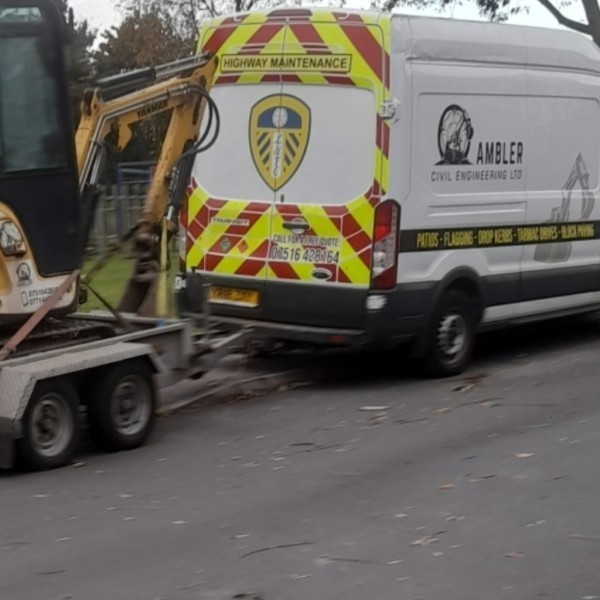Introduction to Extension Builders in Cleckheaton
Cleckheaton, a charming town in West Yorkshire, is known for its rich history and vibrant community. As families grow and lifestyles change, many residents find themselves in need of more space. This is where extension builders in Cleckheaton come into play. These skilled professionals help transform homes by adding much-needed space, enhancing functionality, and increasing property value. In this article, we'll explore the world of extension builders in Cleckheaton, covering everything from planning and design to construction and completion.
The Role of Extension Builders
Extension builders are specialists in creating additional space within existing properties. Their expertise ranges from designing and planning to executing the construction process. They work closely with homeowners to understand their needs and preferences, ensuring that the final result aligns with the client's vision. In Cleckheaton, extension builders are well-versed in local building regulations and architectural styles, making them invaluable partners in any home improvement project.
Understanding the Importance of Local Expertise
Local extension builders possess a deep understanding of Cleckheaton's architectural landscape and regulatory environment. This knowledge is crucial for navigating the planning permission process and ensuring compliance with building codes. By choosing a local builder, homeowners can benefit from their familiarity with the area's unique challenges and opportunities.
Key Skills and Services Offered
- Design and Planning: Extension builders collaborate with architects and designers to create detailed plans that meet the homeowner's needs.
- Project Management: They oversee the entire construction process, coordinating with subcontractors and suppliers to ensure timely completion.
- Construction: Skilled tradespeople carry out the building work, from laying foundations to installing fixtures and fittings.
- Compliance: Builders ensure that all work adheres to local building regulations and safety standards.
Types of Home Extensions
Home extensions come in various forms, each offering unique benefits and challenges. Understanding the different types can help homeowners make informed decisions about their projects.
Single-Storey Extensions
Single-storey extensions are a popular choice for expanding ground-floor living areas. They can be used to create larger kitchens, dining rooms, or living spaces. These extensions often involve minimal disruption to the existing structure and can be completed relatively quickly.
Double-Storey Extensions
Double-storey extensions provide additional space on both the ground and first floors. This type of extension is ideal for growing families who need extra bedrooms or bathrooms. While more complex than single-storey extensions, they offer significant increases in living space and property value.
Wrap-Around Extensions
Wrap-around extensions combine side and rear extensions to create a larger, more versatile space. They are perfect for open-plan living areas and can dramatically change the layout of a home. These extensions require careful planning to ensure seamless integration with the existing structure.
Loft Conversions
Loft conversions transform unused attic space into functional rooms, such as bedrooms, offices, or playrooms. They are a cost-effective way to add space without altering the home's footprint. However, they may require structural modifications to accommodate new staircases and windows.
Planning and Designing Your Extension
Successful home extensions begin with careful planning and design. This stage involves defining the project's scope, setting a budget, and creating detailed plans that reflect the homeowner's vision.
Setting a Realistic Budget
Establishing a budget is a crucial step in the planning process. Homeowners should consider all potential costs, including design fees, materials, labour, and permits. It's wise to include a contingency fund for unexpected expenses that may arise during construction.
Working with Architects and Designers
Architects and designers play a vital role in bringing a homeowner's vision to life. They create detailed plans and 3D models that help clients visualise the finished project. Collaborating with these professionals ensures that the extension is both functional and aesthetically pleasing.
Obtaining Planning Permission
In Cleckheaton, most home extensions require planning permission from the local council. This process involves submitting detailed plans and documentation for approval. Extension builders can assist homeowners in navigating this process, ensuring that all necessary permits are obtained before construction begins.
The Construction Process
Once planning and design are complete, the construction phase begins. This stage involves several key steps, each requiring careful coordination and execution.
Site Preparation
Before construction can commence, the site must be prepared. This involves clearing the area, setting up temporary fencing, and ensuring that utilities are safely disconnected. Builders also conduct a site survey to identify any potential challenges or hazards.
Foundation and Structural Work
The foundation is a critical component of any extension, providing stability and support for the structure. Builders excavate the site and pour concrete foundations, ensuring they meet local building codes. Structural work, such as erecting walls and installing beams, follows the foundation phase.
Roofing and Insulation
Once the structure is in place, builders install the roof and insulation. This step is essential for protecting the extension from the elements and ensuring energy efficiency. Roofing materials are chosen to match the existing structure, creating a cohesive appearance.
Interior and Exterior Finishes
The final stage of construction involves adding interior and exterior finishes. This includes installing windows and doors, fitting electrical and plumbing systems, and applying paint or wallpaper. Builders also complete any necessary landscaping to integrate the extension with the surrounding environment.
Choosing the Right Extension Builder
Selecting the right extension builder is crucial for the success of any home improvement project. Homeowners should consider several factors when making their choice.
Experience and Reputation
Experienced builders with a strong reputation in Cleckheaton are more likely to deliver high-quality results. Homeowners can research potential builders by reading online reviews, checking references, and viewing past projects.
Licensing and Insurance
It's essential to choose a builder who is licensed and insured. This ensures that they meet industry standards and can provide protection in case of accidents or damage during construction.
Communication and Transparency
Effective communication is key to a successful building project. Homeowners should choose a builder who is transparent about costs, timelines, and potential challenges. Regular updates and open dialogue help prevent misunderstandings and ensure a smooth construction process.
Benefits of Home Extensions
Home extensions offer numerous benefits, making them an attractive option for many homeowners in Cleckheaton.
Increased Living Space
One of the primary benefits of a home extension is the additional living space it provides. Whether it's a new bedroom, a larger kitchen, or an open-plan living area, extensions can significantly enhance a home's functionality and comfort.
Enhanced Property Value
Well-designed extensions can increase a property's value, making them a smart investment for homeowners. By adding space and improving the home's layout, extensions can attract potential buyers and command higher sale prices.
Customisation and Personalisation
Home extensions allow homeowners to customise their living spaces to suit their needs and preferences. From choosing materials and finishes to designing unique layouts, extensions offer endless possibilities for personalisation.
Improved Energy Efficiency
Modern extensions often incorporate energy-efficient features, such as improved insulation, double-glazed windows, and energy-saving appliances. These upgrades can reduce energy consumption and lower utility bills, benefiting both the environment and the homeowner's wallet.
Common Challenges and Solutions
While home extensions offer many benefits, they can also present challenges. Understanding these potential obstacles and their solutions can help homeowners navigate the process more smoothly.
Budget Overruns
One common challenge is staying within budget. To avoid overspending, homeowners should establish a realistic budget, include a contingency fund, and work closely with their builder to manage costs. Regular communication and transparency can help prevent unexpected expenses.
Delays and Disruptions
Construction projects can sometimes face delays due to weather, supply chain issues, or unforeseen complications. Homeowners can minimise disruptions by choosing an experienced builder, maintaining open communication, and being flexible with timelines.
Planning Permission Hurdles
Obtaining planning permission can be a complex process, with potential hurdles such as objections from neighbours or changes to local regulations. Homeowners can overcome these challenges by working with experienced builders who understand the local planning process and can provide guidance and support.
Frequently Asked Questions
- Do I need planning permission for a home extension in Cleckheaton? Most home extensions require planning permission. It's essential to consult with your builder and local council to determine the specific requirements for your project.
- How long does it take to complete a home extension? The timeline for a home extension varies depending on the project's complexity and size. On average, extensions can take anywhere from a few months to over a year to complete.
- Can I live in my home during the construction of an extension? In many cases, homeowners can remain in their homes during construction. However, there may be periods of disruption, so it's important to discuss this with your builder and plan accordingly.
- How can I ensure my extension matches the existing structure? Working with experienced architects and builders can help ensure that your extension seamlessly integrates with your home's existing design and style.
- What are the most popular types of home extensions? Popular types of home extensions include single-storey, double-storey, wrap-around extensions, and loft conversions.
- How can I find a reputable extension builder in Cleckheaton? Research potential builders by reading online reviews, checking references, and viewing past projects. It's also helpful to seek recommendations from friends or family who have completed similar projects.
Final Thoughts on Extension Builders in Cleckheaton
Extension builders in Cleckheaton play a vital role in helping homeowners create the space they need to accommodate their changing lifestyles. By understanding the different types of extensions, planning and designing carefully, and choosing the right builder, residents can enhance their homes' functionality, value, and aesthetic appeal. With the right approach, a home extension can be a rewarding investment that provides lasting benefits for years to come.

























